Juniper berries come from juniper shrubs or trees and are known for their distinct woody pine flavor and aroma. They’re commonly used as a spice, especially in various European cuisines, and are what gives gin its unique flavor!
Fun Fact: Juniper berries aren’t actually berries. They’re seed cones (like the ones on pine trees!) that resemble berries.
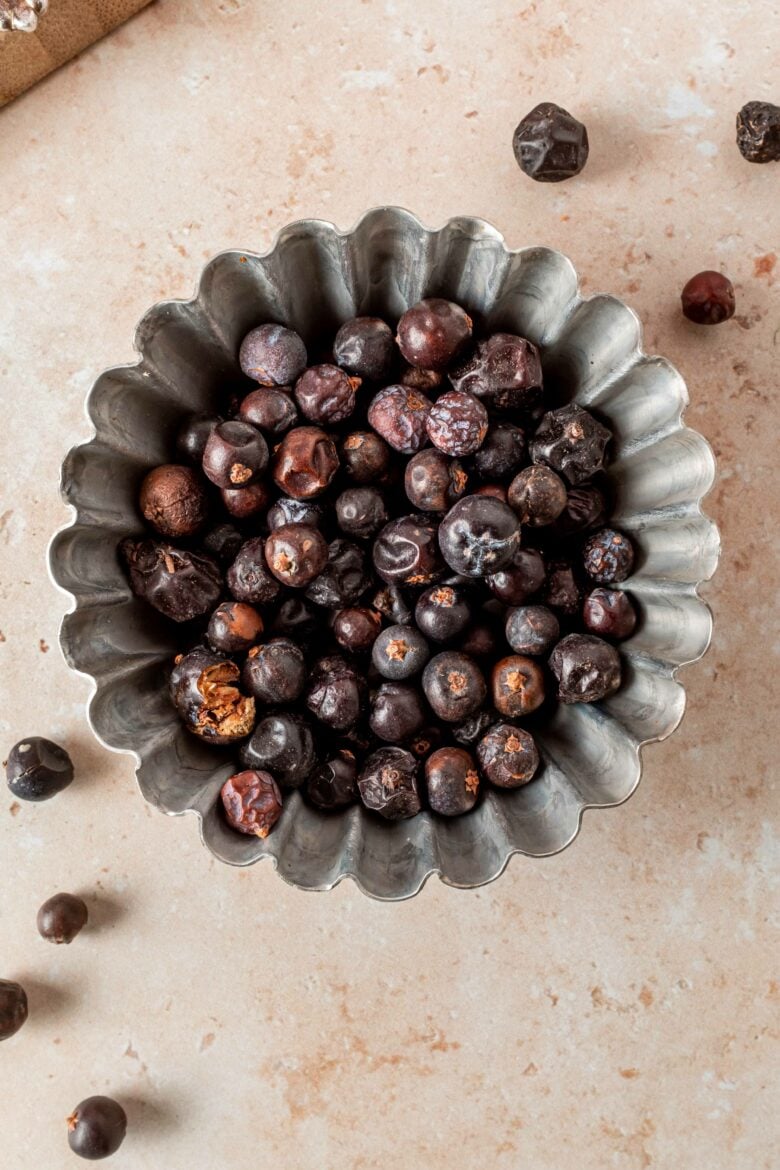
Culinary Use
Juniper berries have a piney, slightly resinous flavor with a hint of citrus and spice. They pair well with meats, such as pork and lamb, and are particularly well-suited to game meats, such as venison.
Juniper berries are often used in rubs and marinades, and can enhance the flavors of soups, stews and sauces.
Preparing Juniper Berries
To prepare juniper berries for cooking, gently crush them with a mortar and pestle or even the back of a spoon. This will help release their flavor.
You generally don’t want to grind juniper berries into a fine powder, as is common with many other spices. When using in rubs, such as in our corned beef and cabbage, we recommend processing the berries to a coarse grind.
The Science of Flavor: Juniper has a variety of flavor compounds, most of which are terpenes. You can think of terpenes as the natural compounds responsible for giving certain plants their distinctive smells and flavors. Pinene delivers a piney, resinous flavor. Sabinene introduces citrusy and spicy notes, while myrcene adds earthy, herbal undertones. And limonene adds a subtle citrus aroma.
Buying Juniper Berries
Juniper berries for culinary purposes are generally bought semi-dried. The dried berries you find in stores typically come from common juniper (juniperus communis), which is the species primarily used in cooking and gin production.
We recommend buying juniper berries from your local spice shop (this is ours), or from an online retailer such as The Spice House.
Of course, foraging juniper berries is also an option. While many juniper species produce berries that are too bitter to be consumed, many found in North America were a part of Native American diets and offer a pleasant sweetness. Please note that several juniper species are toxic, so refrain from eating the berries you find in the wild unless you’re absolutely certain of their safety.
Storage Instructions
Store whole juniper berries in an airtight container away from sunlight and heat for up to six months. Always crush or grind your juniper berries just before using to preserve their flavor and aroma.
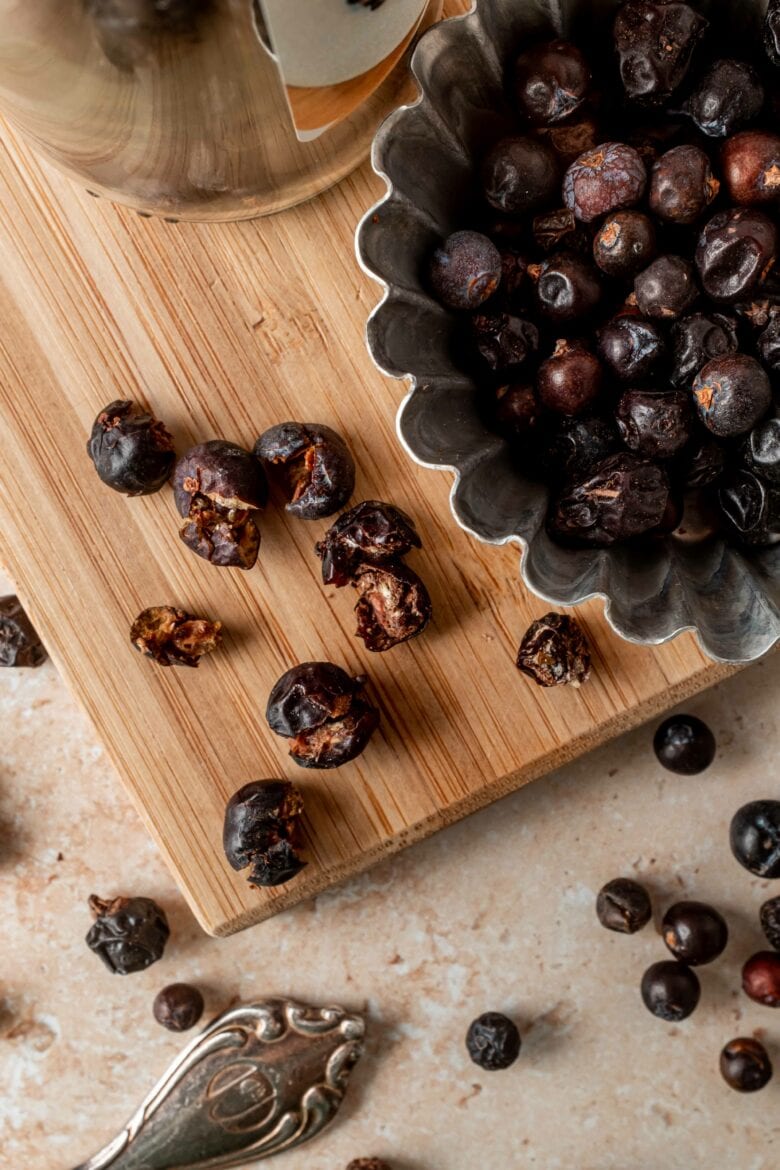
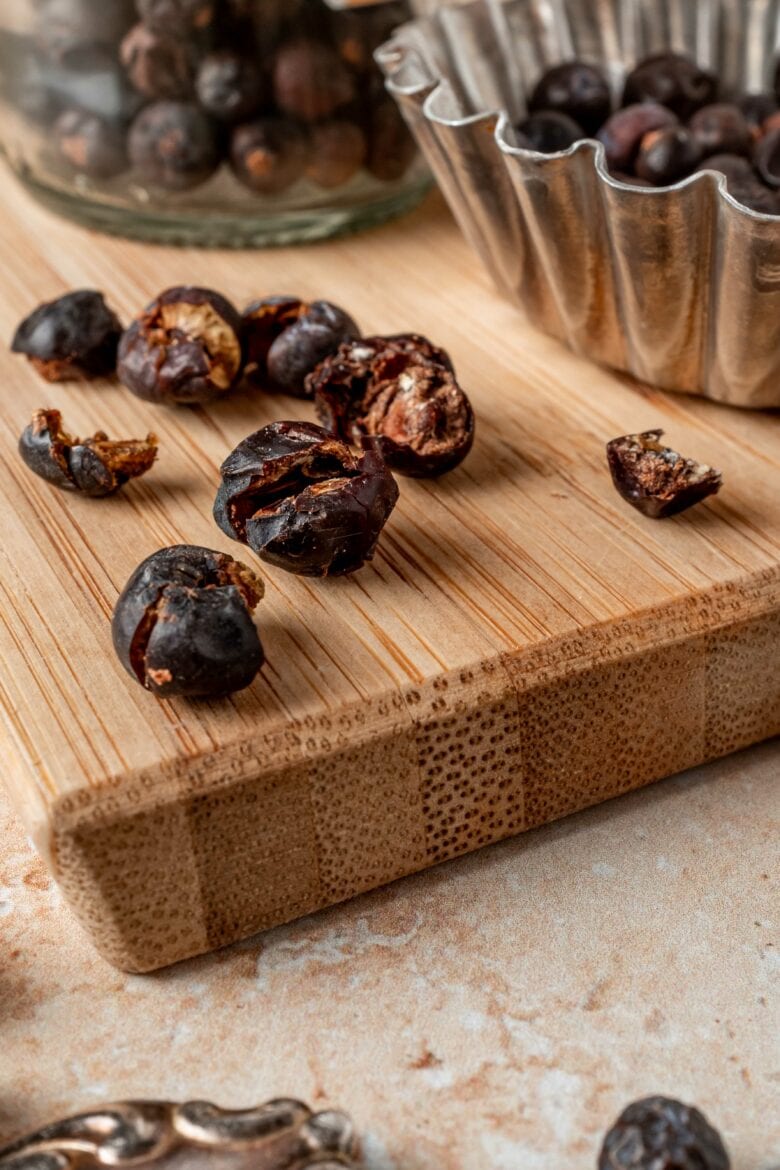
Recipes That Use Juniper Berries
Here are a few traditional recipes that incorporate juniper berries:
- Choucroute Garnie: An Alsatian recipe consisting of sauerkraut and various meats, including sausages and other cured meats.
- Sauerbraten: A traditional German roast served with a rich, tangy gravy.
- Bigos: A Polish dish often called Hunter’s Stew that contains sauerkraut, cabbage and various meats.
- Mulled Wine (Glühwein): Warm, spiced red wine popular in German-speaking countries, especially during the holidays.
And here is a list of ingredients that pair well with juniper berries:
- Herbs: Herbs like rosemary and thyme complement and enhance the earthy, piney flavors of juniper.
- Citrus: The brightness of lemon and orange perfectly complement the more earthy notes of juniper.
- Meat: Game meats, like venison or duck, have a bold flavor that stands up well to juniper’s intensity.
- Salmon: Juniper’s piney and resinous notes complement the rich and fatty flavors of salmon. Try it in a homemade gravlax recipe!
- Cabbage: Whether you’re making braised cabbage, sauerkraut or coleslaw, juniper berries can infuse the dish with a nice piney flavor.
- Chocolate, cherries and cranberries: And for dessert? Try using it in chocolate truffles or ganache or even a cherry or cranberry sauce. Just make sure to use it sparingly.
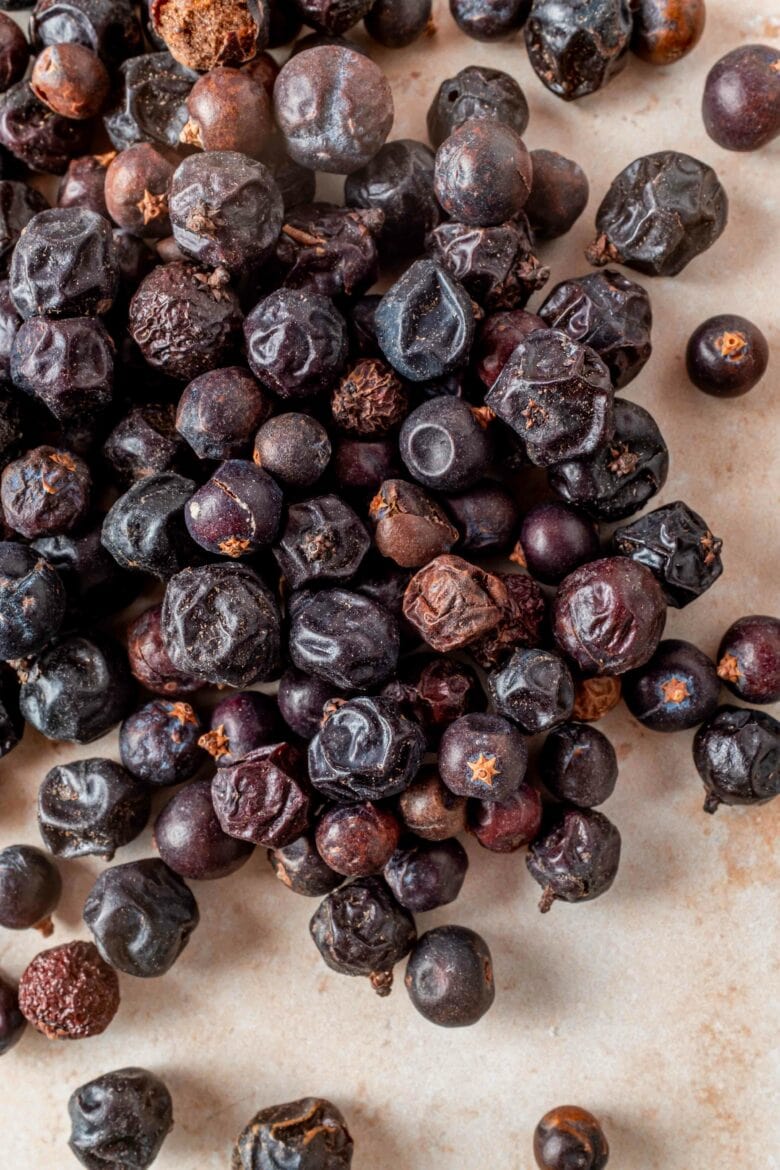
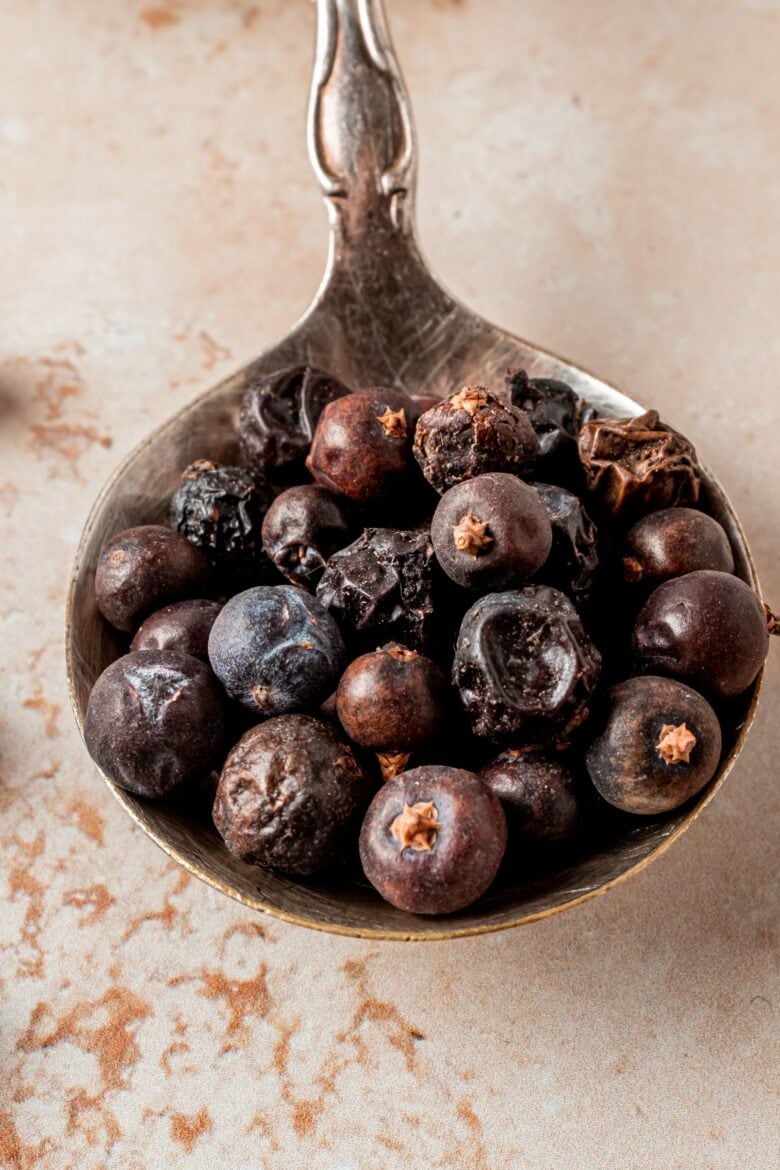
Frequently Asked Questions
Store bought juniper berries are edible, although biting into a whole berry would be quite intense due to their strong flavor. When cooking, it’s best to crush the berries or remove them before serving to reduce the risk of someone encountering a whole berry.
If you’re foraging for fresh berries, it’s important to note that several species of juniper are toxic and many produce berries that are too bitter to consume.
Juniper berries have a piney, slightly resinous flavor with a hint of citrus and spice.
Juniper is a common ingredient in many Northern and Eastern European cuisines. They are an especially common ingredient in Scandinavian dishes. Some Native American tribes also use juniper berries as a seasoning in traditional dishes.
Juniper berries generally don’t need to be toasted to release their flavor. In fact, over-toasting your juniper berries can cause them to become bitter.
Juniper is native to several regions across the Northern Hemisphere. Various species can be found in North America, Europe, and Asia.
Types of Juniper
There are over 50 species of juniper, here are some of the most well-known:
Common Juniper (Juniperus communis): Common juniper is a small shrub native to Europe, Asia and North America. These juniper berries are most widely used in cooking and are also the berry used for flavoring gin. When buying dried juniper berries, this is most likely what you’ll be getting.
Eastern Red Cedar (Juniperus virginiana): While common juniper is a shrub, the Eastern Red Cedar is actually a coniferous evergreen tree! It’s native to eastern North America and is found primarily in the United States.
Rocky Mountain Juniper (Juniperus scopulorum): Rocky Mountain juniper is a small evergreen tree found in western North America. The berries, leaves and wood of Rocky Mountain juniper have been historically used by various Native American tribes for everything from making tea to crafting tools.

This post may contain affiliate links through which we may earn a small commission at no additional cost to you. We only recommend products that we genuinely love and would use ourselves.